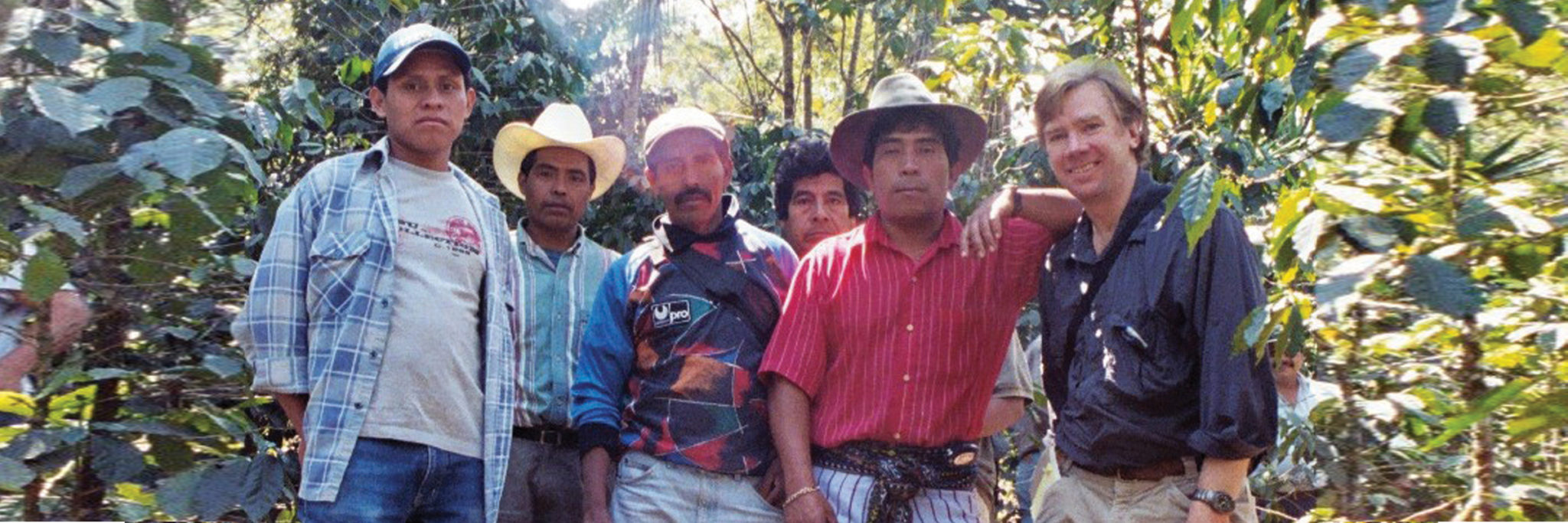Photo: Cannell (right) with friends and associates in the coffee fields of Guatemala
For Jim Cannell ’85, the morning cups of coffee steam with particular significance. The names of Mexican Altura, Guatemalan Atitlan, and Indonesian Sumatra, glossy on their store packaging, now percolate as part of his own enterprise, Jim’s Organic Coffee. Yet that line of work had not always been part of Cannell’s original career plans. His path to caffeinedom began in Wall Street’s futures market, where he bought and sold unroasted coffee. It wasn’t long before Cannell saw a new opportunity emerging. “We were starting to get offers from organic coffee growers, and at the time not too many people were doing that.” The realization sparked an idea. So, in 1992, he took on the financial undertaking of launching his own business, which grew into a creative experience, and eventually into an environmental passion.
Cannell’s interest in coffee had actually been brewing since his years at Denison, when he took an international trade class with former economics professor Richard Lucier. After reading Lucier’s book, The International Political Economy of Coffee: From Juan Valdez to Yank’s Diner, Cannell felt a deeper understanding of the trade. “I saw a connection between the physical products and the exchange, and I understood the importance of a free market. The concern, then, is in the organic culture.” The environmental factor of organic farming is important to Cannell, but “It’s much more than a concern of pesticides and topsoil protection, it’s about ensuring the work of the farmers,” whose work is a daily passion. “For them, it’s a balance of work and family life, and that should be protected.”
Cannell’s altruism for the organic farming culture plays out in several aspects of his business, which donates 10 cents on every pound of its Guatemalan Atitlan Blend, and 10 percent of sales of its seasonal blend to Child Aid, a group that is building a library on the company’s behalf in Guatemala. Jim’s Organic Coffee also donates portions of its WaterAid blend to WaterAid, a London-based group that helps organizations in Uganda and Ethiopia set up low-cost, sustainable clean-water projects.
When Jim’s Organic Coffee first launched, Cannell could find only one store on the East Coast that understood the meaning of “organic.” But both the organic foods and coffee markets have since ballooned, the latter having grown to be America’s number two import, following closely behind oil. Now, with over 800 customers along the East Coast and into the Midwest, Cannell is confident in continued success. “Coffee is an important part of a lot of people’s day. We hope that by putting out great, quality coffee, that success will come back to us.”

